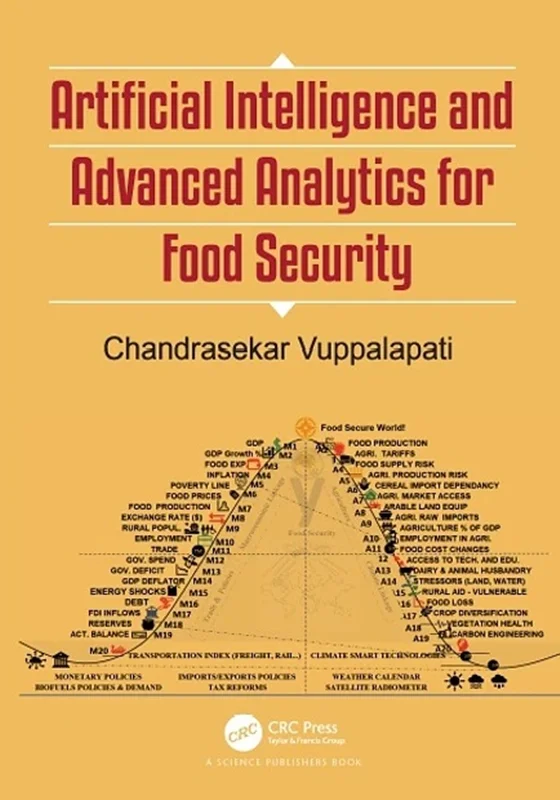Artificial Intelligence and Advanced Analytics for Food Security
Chandrasekar Vuppalapati, 1032346183, 9781032346182, 978-1-032-34618-2, 978-1032346182, 978-1-032-34619-9, 978-1032346199, 9781032346199, 978-1-003-32309-9, 9781003323099, 978-1003323099
Climate change, increasing population, food-versus-fuel economics, pandemics, etc. pose a threat to food security to unprecedented levels. It has fallen upon the practitioners of agriculture and technologists of the world to innovate and become more productive to address the multi-pronged food security challenges. Agricultural innovation is key to managing food security concerns. The infusion of data science, artificial intelligence (AI), advanced analytics, satellites data, geospatial data, climatology, sensor technologies, and climate modeling with traditional agricultural practices such as soil engineering, fertilizers use, and agronomy are some of the best ways to achieve this. Data science helps farmers to unravel patterns in fertilizer pricing, equipment usage, transportation and storage costs, yield per hectare, and weather trends to better plan and spend resources. AI enables farmers to learn from fellow farmers to apply best techniques that are transferred learning from AI to improve agricultural productivity and to achieve financial sustainability. Sensor technologies play an important role in getting real-time farm field data and provide feedback loops to improve overall agricultural practices and can yield huge productivity gains. Advanced Analytics modeling is essential software technique that codifies farmers’ tacit knowledge such as better seed per soil, better feed for dairy cattle breed, or production practices to match weather pattern that was acquired over years of their hard work to share with worldwide farmers to improve overall production efficiencies, the best antidote to food security issue. In addition to the paradigm shift, economic sustainability of small farms is a major enabler of food security.
The book reviews all these technological advances and proposes macroeconomic pricing models that data mines macroeconomic signals and the influence of global economic trends on small farm sustainability to provide actionable insights to farmers to avert any financial disasters due to recurrent economic crises.


